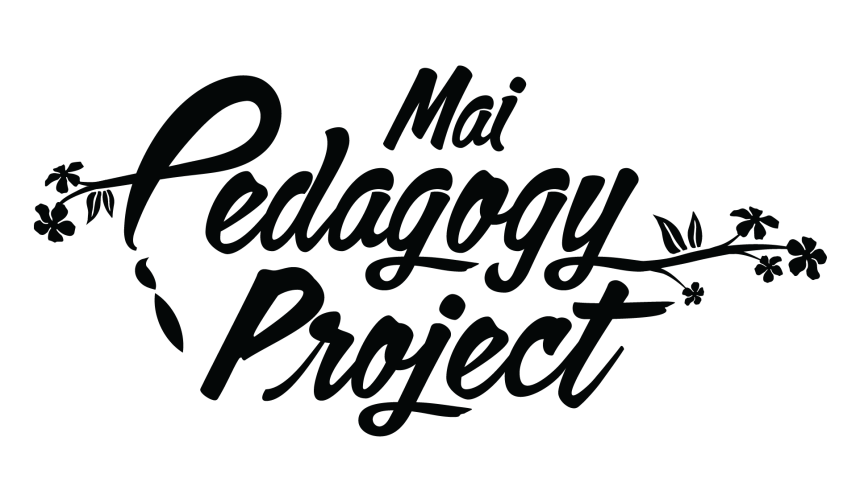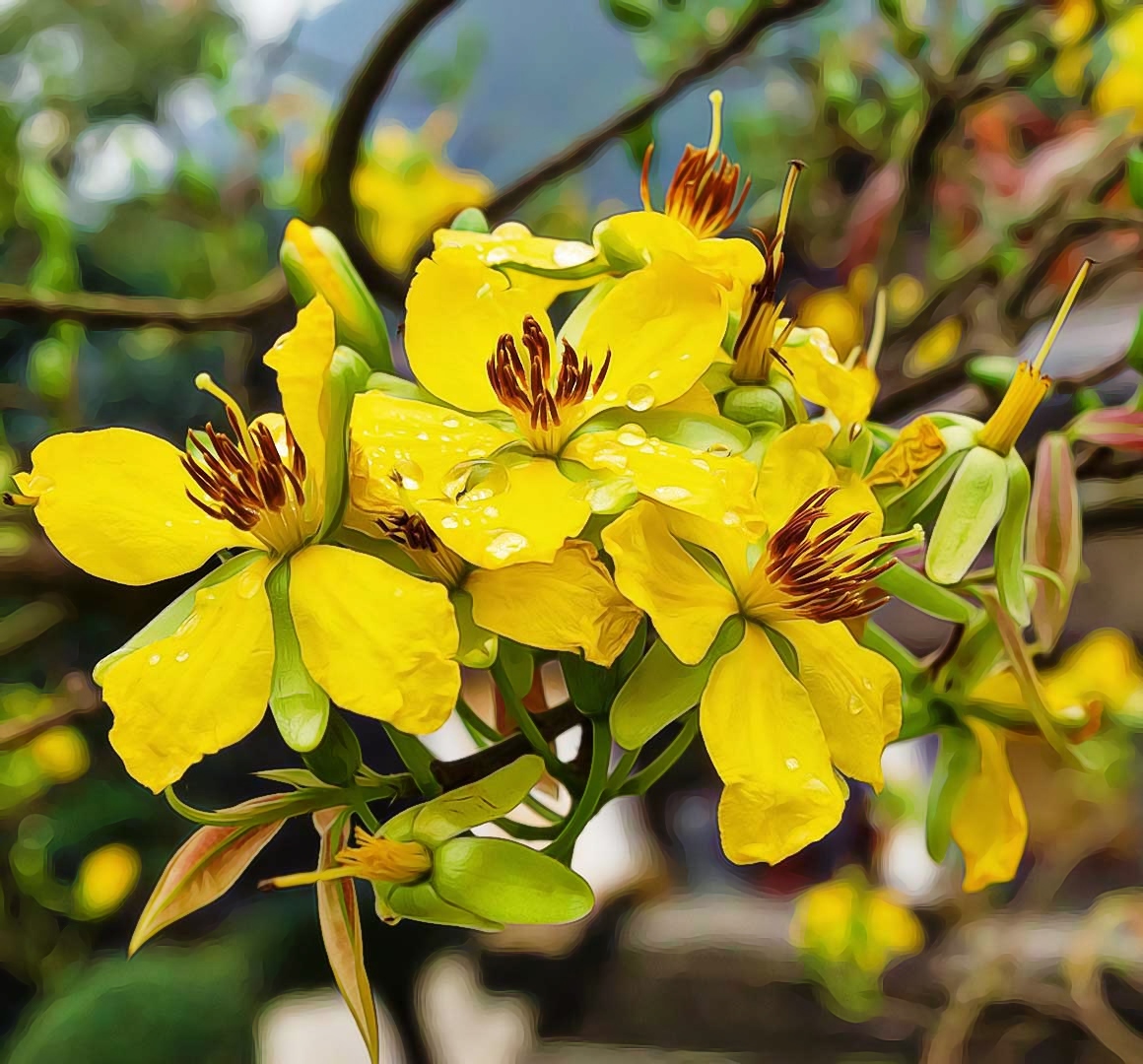What Is Mai Pedagogy Project?
“Mai” has multiple meanings in the Vietnamese language:
1. Hoa Mai
It means yellow apricot blossoms (hoa mai), a delicate and ancient symbol of renewal/life/good fortune that is also believed to vanquish evil.
2. Ngày Mai
It means tomorrow (ngày mai), an ideation of possible futures.
“Mai” is also a play on the English word “my”, an intentional shift from “I”/individual voice to an all-encompassing entity that no single body can possess. These dual meanings represent the overarching inquiries for Mai Pedagogy Project:
“Mai” has multiple meanings in the Vietnamese language:
1. Hoa Mai
It means yellow apricot blossoms (hoa mai), a delicate and ancient symbol of renewal/life/good fortune that is also believed to vanquish evil.
2. Ngày Mai
It means tomorrow (ngày mai), an ideation of possible futures.
“Mai” is also a play on the English word my, an intentional shift from “I”/individual voice to an all-encompassing entity that no single body can possess. These dual meanings represent the overarching inquiries for Mai Pedagogy Project, a research-based virtual homespace for and by educators, youth advocates, and organizers committed to liberatory education:
A collaboration among scholars, educators, artists, and other community members, the project serves as an experiential learning space of knowledge and practices for liberatory education. Through multimodality and the arts, Mai Pedagogy Project aspires to spark (k)new musings, theorizations, and implementation of justice-centered pedagogies for the purposes of:
Capturing more imaginative, unconventional, dynamic forms of knowledge within and beyond “traditional academic texts”
Capturing more imaginative, unconventional, dynamic forms of knowledge within and beyond “traditional academic texts”
Making scholarly research more widely available and accessible to broader audiences and learners
Making scholarly research more widely available and accessible to broader audiences and learners
Offering a pedagogical tool for educators interested in racially just practices in formal and informal educational spaces
Offering a pedagogical tool for educators interested in racially just practices in formal and informal educational spaces
Expanding representations of research-based findings and counterstories (un)told
Expanding representations of research-based findings and counterstories (un)told
Featuring and amplifying scholar-educator-artivists as public intellectuals
Featuring and amplifying scholar-educator-artivists of Color as public intellectuals
About Our Logo & Character Design
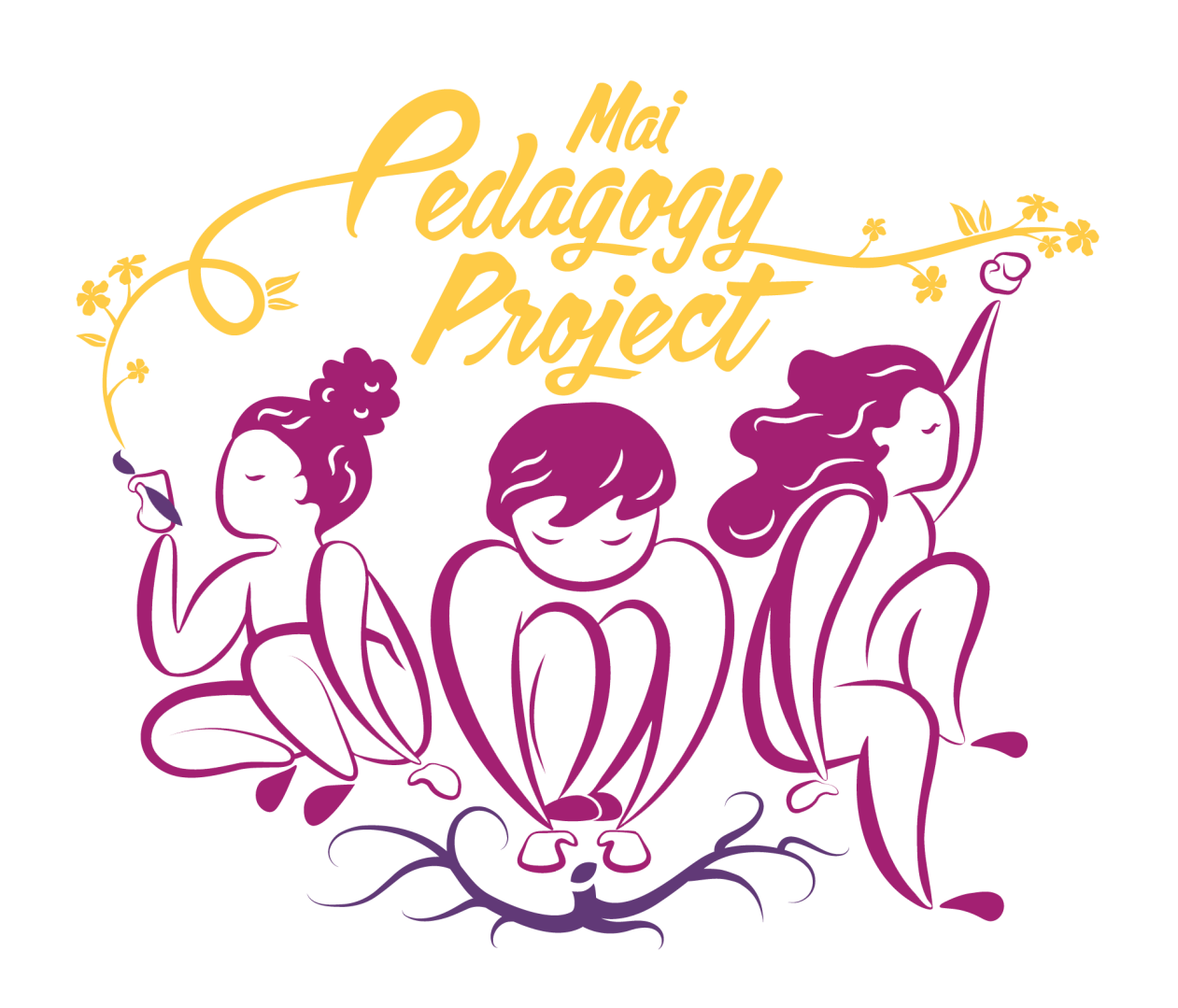
Our logo was designed in collaboration with Eunice Ho, and brought to life through the character designs of Omar Gomet. In Eunice’s own words: “The logo features three figures: one who is painting, one who is planting seeds, and one with a fist of power. They are facing back-to-back as a show of collective solidarity and community care: we do this work together and have each other’s backs. The logo also features yellow apricot blossoms (also known as “hoa mai” in Vietnamese, a symbol of renewal/life/good fortune). The roots represent indigenous and community-grounded wisdom to move at a pace that is both anti-capitalist and deeply grounded.”
Eunice Ho
Eunice Ho (she/her) is an Ethnic Studies educator, curriculum developer, and graphic designer who practices humanizing, healing-centered, praxis-driven, and place-based critical pedagogy. She is the daughter of Taiwanese immigrants. She received her BA in Ethnic Studies from UCSD and her M.Ed with an Emphasis in Ethnic Studies from UCLA’s Teacher Education Program. As a graphic designer, she seeks to use her skill set to support grassroots organizing, magnify data-driven research around inequity, and uplift youth voices; and as an educator through her involvement with the Liberated Ethnic Studies Model Curriculum Consortium, she seeks to continue building the Ethnic Studies movement. She is the designer of the logo for Mai Pedagogy Project.
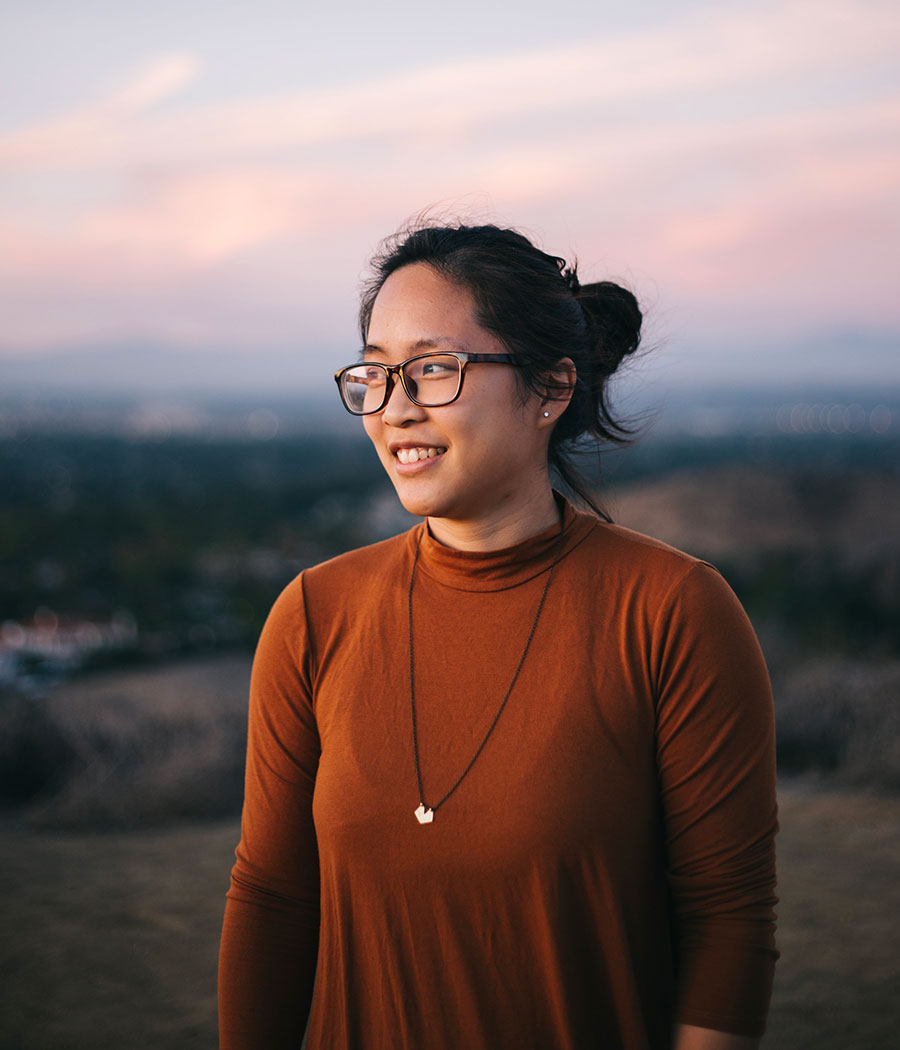

Our logo was designed in collaboration with Eunice Ho, and brought to life through the character designs of Omar Gomet. In Eunice’s own words: “The logo features three figures: one who is painting, one who is planting seeds, and one with a fist of power. They are facing back-to-back as a show of collective solidarity and community care: we do this work together and have each other’s backs. The logo also features yellow apricot blossoms (also known as “hoa mai” in Vietnamese, a symbol of renewal/life/good fortune). The roots represent indigenous and community-grounded wisdom to move at a pace that is both anti-capitalist and deeply grounded.”
Eunice Ho

Eunice Ho (she/her) is an Ethnic Studies educator, curriculum developer, and graphic designer who practices humanizing, healing-centered, praxis-driven, and place-based critical pedagogy. She is the daughter of Taiwanese immigrants. She received her BA in Ethnic Studies from UCSD and her M.Ed with an Emphasis in Ethnic Studies from UCLA’s Teacher Education Program. As a graphic designer, she seeks to use her skill set to support grassroots organizing, magnify data-driven research around inequity, and uplift youth voices; and as an educator through her involvement with the Liberated Ethnic Studies Model Curriculum Consortium, she seeks to continue building the Ethnic Studies movement. She is the designer of the logo for Mai Pedagogy Project.
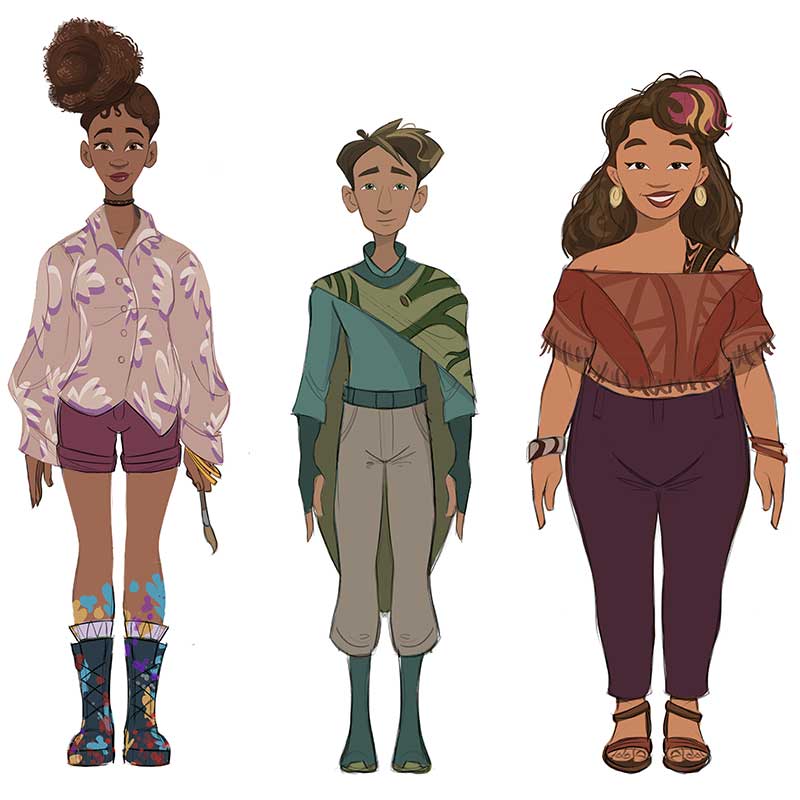
The figures in our logo were brought to life through the character designs of Omar Gomet. They embody the characteristics needed to bring alternative educational possibilities into action, including creativity, play, perceptions of possible futures, and kinship.
Omar Gomet
Omar Gomet is a Visual Development and Character Design artist in San Francisco Bay Area. Omar has worked with Marvel Studios Animation and multiple independent projects where he worked amongst the creative team to create character concepts. Omar works on designing and assisting in movies, shorts, or television show character concepts. He is currently creating original characters for short films emphasizing more diversity.
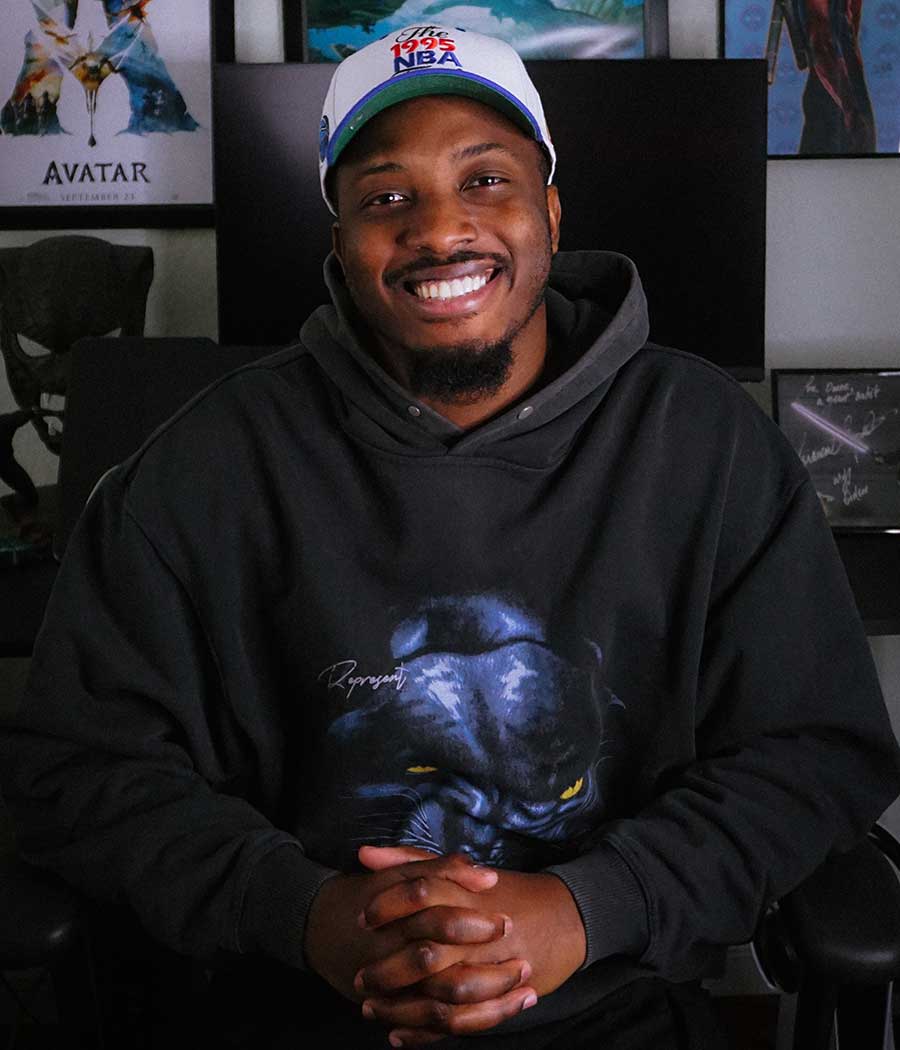

The figures in our logo were brought to life through the character designs of Omar Gomet. They embody the characteristics needed to bring alternative educational possibilities into action, including creativity, play, perceptions of possible futures, and kinship.
Omar Gomet

Omar Gomet is a Visual Development and Character Design artist in San Francisco Bay Area. Omar has worked with Marvel Studios Animation and multiple independent projects where he worked amongst the creative team to create character concepts. Omar works on designing and assisting in movies, shorts, or television show character concepts. He is currently creating original characters for short films emphasizing more diversity.
Share Your Experience
We are committed to offering our resources to educators, youth advocates, organizers, and community members at no cost. If you have used materials from Mai Pedagogy Project in any way, we would love to learn from you and your experiences to sustain our project and support our future work!

